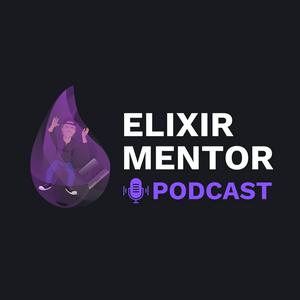In this episode of the Elixir Mentor Podcast, I chat with Rob Walling — serial entrepreneur, author of The SaaS Playbook, founder of MicroConf, co-founder of TinySeed, and the guy who bootstrapped Drip to a successful exit. With over 20 years of experience and investments in 230+ B2B SaaS companies, Rob shares the playbook for building software businesses without venture capital.
Rob breaks down his stairstep method of entrepreneurship, explaining why technical founders should start with small wins on existing marketplaces before attempting a standalone SaaS product. We get into the common traps developers fall into — refusing to learn marketing, building products that "sell themselves," and bootstrapping two-sided marketplaces without an existing audience. Rob also shares the full Drip origin story, from a plateauing email tool to a marketing automation platform that took off after listening to customer feedback.
We cover the four core SaaS skills every founding team needs (marketing or sales, product, and engineering), how to decide between finding a co-founder and learning to sell on your own, and where successful SaaS ideas actually come from — 72% were discovered at a day job. Rob also weighs in on how AI is reshaping the SaaS landscape, why he doesn't believe in a "SaaS apocalypse," and what really drives company valuations. His final advice for technical founders: think in years, not months, and invest in learning entrepreneurship the same way you invested in learning to code.
Resources Mentioned:
- The SaaS Playbook: https://saasplaybook.com
- MicroConf: https://microconf.com
- TinySeed: https://tinyseed.com
Connect with Rob:
- Website: https://robwalling.com
- X/Twitter: https://x.com/robwalling
- LinkedIn: https://www.linkedin.com/in/robwalling
- Podcast: https://www.startupsfortherestofus.com
Sponsors:
- Paraxial.io: https://paraxial.io
- Jido: https://agentjido.xyz/discord
SUPPORT ELIXIR MENTOR
- Elixir Mentor: https://elixirmentor.com


